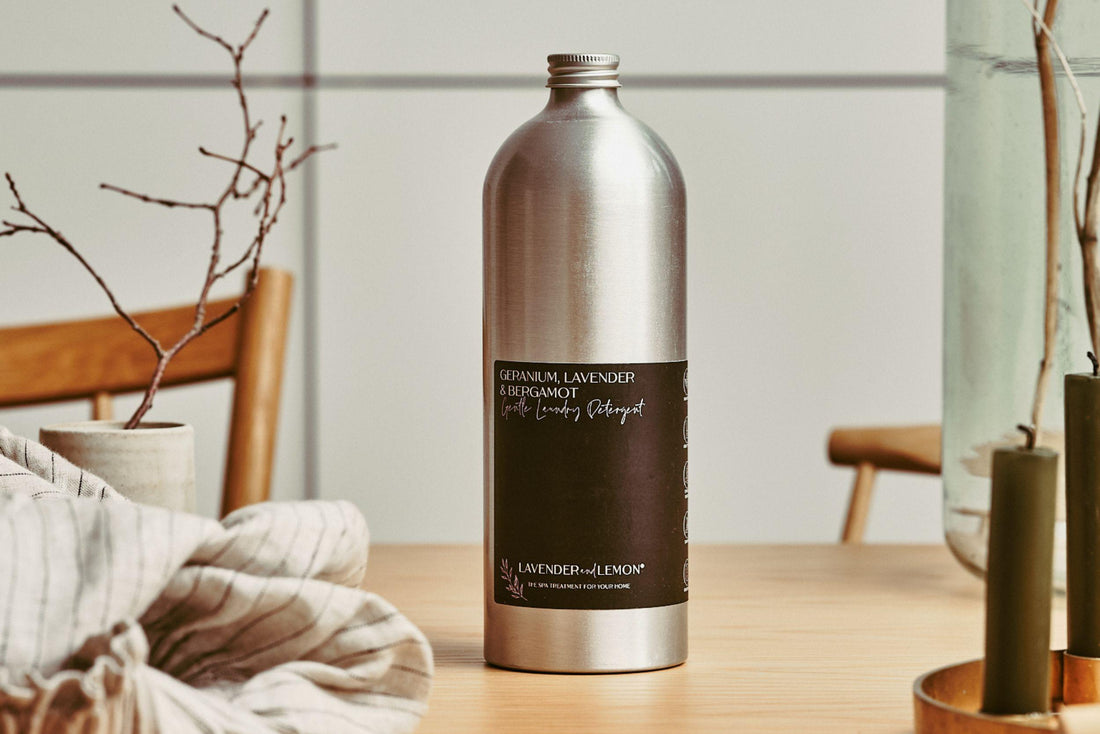Free Shipping Over £40

Understanding the Difference Between Bio and Non-Bio Laundry Detergent: Which Is Right for You?
Share
When it comes to doing laundry, choosing the right detergent can make a big difference in how clean and fresh your clothes feel. One of the most common dilemmas is deciding between bio and non-bio laundry detergent. Both types have their advantages, and understanding the difference can help you select the best option for your specific laundry needs.
In this blog post, we'll break down the key differences between bio and non-bio laundry detergent, explore their benefits, and help you decide which one is right for you.
What is Bio Laundry Detergent?
Bio laundry detergent contains enzymes that actively break down dirt, stains, and other residues on clothes. These enzymes, such as proteases and lipases, help to break down proteins, starches, and fats, making bio detergents particularly effective at removing tough stains like food, sweat, and grease.
Benefits of Bio Laundry Detergent:
- Superior Stain Removal: Thanks to the enzymes, bio laundry detergent is highly effective at tackling stubborn stains and ground-in dirt, even at lower temperatures.
- Energy-Efficient: Bio detergents work well at lower temperatures, reducing the need for hot washes, which can save energy and lower utility bills.
- Perfect for Everyday Laundry: If you’re looking for a detergent that cleans clothes thoroughly with minimal effort, bio detergent is an excellent choice for day-to-day laundry.
When to Use Bio Laundry Detergent:
- For removing tough stains, such as food spills, sweat, or grease.
- When washing items made from cotton, polyester, or mixed fabrics.
- In cool or warm water settings for a more energy-efficient wash.
What is Non-Bio Laundry Detergent?
Non-bio laundry detergent, on the other hand, does not contain enzymes. This makes it a gentler option, especially for those with sensitive skin or allergies. Non-bio laundry liquid is formulated to clean clothes effectively without the use of enzymes, making it a popular choice for baby clothes and people with delicate skin.
Benefits of Non-Bio Laundry Detergent:
- Gentler on Skin: The absence of enzymes makes non-bio laundry detergent less likely to cause irritation, making it ideal for individuals with sensitive skin, eczema, or allergies.
- Suitable for Baby Clothes: Many parents prefer non-bio detergents for washing their babies' clothes, as the gentler formula reduces the risk of skin irritation.
- Less Likely to Cause Fading: Non-bio detergent is also less likely to cause fading or damage to delicate fabrics, making it a good choice for washing items like wool or silk.
When to Use Non-Bio Laundry Detergent:
- For washing baby clothes or clothes for people with sensitive skin.
- When washing delicate fabrics like wool or silk that require a gentler wash.
- When maintaining the color and quality of clothes over time is a priority.
[product=gentle-laundry-detergent]
✓ Eco Friendly Laundry Detergent
✓ Zero Harsh Chemicals, 100% Clean
✓ Gentle on Fabric, Tough on Dirt
[/product]
Bio vs. Non-Bio Laundry Detergent: Which One Should You Choose?
When choosing between bio and non-bio laundry detergent, it’s important to consider your personal needs, the types of fabrics you’re washing, and any skin sensitivities in your household.
- Choose Bio Laundry Detergent if:
- You want an effective stain remover for tough, everyday stains.
- You prefer energy-efficient washing at lower temperatures.
- You primarily wash sturdy fabrics like cotton and polyester.
- Choose Non-Bio Laundry Detergent if:
- You or someone in your household has sensitive skin or allergies.
- You wash baby clothes or other delicate fabrics regularly.
- You want to prevent fading and maintain the quality of fabrics over time.
Environmental Impact of Bio and Non-Bio Laundry Detergents
When it comes to sustainability, both bio and non-bio laundry detergents have an impact on the environment, but in slightly different ways.
- Bio Detergents: The enzymes used in bio detergents are biodegradable, which means they break down naturally in the environment. Because bio detergents can work efficiently at lower temperatures, they can also help reduce energy consumption in the long run.
- Non-Bio Detergents: While non-bio detergents lack enzymes, they are typically gentler on fabrics and skin, which means fewer chemicals may be needed for sensitive individuals. However, non-bio detergents may require higher water temperatures to achieve the same cleaning power as bio detergents, potentially increasing energy use.
To reduce your environmental impact, look for bio and non-bio laundry detergents that are labeled eco-friendly, biodegradable, or made from plant-based ingredients. Many brands now offer formulations that are gentle on both the environment and your clothes.
Finding the Right Detergent for Your Laundry Needs
Choosing between bio and non-bio laundry detergent ultimately depends on your personal preferences, skin sensitivities, and the types of clothes you're washing. Bio detergents offer powerful stain removal and energy efficiency, making them ideal for everyday laundry. Non-bio detergents, on the other hand, are gentler on sensitive skin and delicate fabrics, making them a perfect choice for baby clothes and anyone with skin sensitivities.
Whichever option you choose, both types of detergents can keep your clothes clean and fresh when used correctly. With a variety of eco-friendly and sustainable options now available, you can enjoy clean clothes while also making an environmentally responsible choice.
RELATED ARTICLES
The Benefits of Non-Bio Laundry Liquid: A Gentle and Effective Option for Your Laundry
The Benefits of Using Eco Laundry Detergent for a Sustainable and Clean Home
The Ultimate Guide to Choosing Laundry Detergents for Sensitive Skin
Discover the Best Laundry Products in the UK: A Guide to Eco-Friendly and Natural Detergents
The Benefits of Using Environmentally Friendly Laundry Detergent for a Sustainable Home
Why Choose Organic Laundry Detergent for a Cleaner, Greener Home
The Benefits of Lavender Laundry Detergent: A Natural Way to Freshen Your Clothes
Which Laundry Detergent is the Best? A Guide to the 5 Best Laundry Detergents for Every Need
Why Choose Non-Toxic Laundry Detergent in the UK? A Guide to Safer, Healthier Laundry
The Best Detergent for Wool: A Guide to Properly Caring for Your Wool and Silk Garments
The Benefits of Using Essential Oils for Laundry: A Natural Way to Freshen Your Clothes








